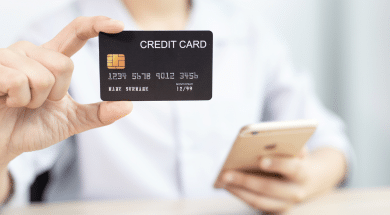Credit cards have become a ubiquitous part of modern finance, offering convenient access to credit and a range of rewards and benefits. However, with so many options available, it can be difficult to know where to start when it comes to choosing a credit card. In this FAQ section, we will answer some of the most commonly asked questions about credit cards, including how they work, what to consider when choosing a card, and how to use them responsibly. Whether you’re a first-time cardholder or a seasoned user, this information will help you make informed decisions and get the most out of your credit card.

Frequently asked questions (FAQs) about credit cards:
1. What is a credit card?
A credit card is a payment card that allows users to borrow funds from a financial institution to pay for purchases or withdraw cash as a loan. The cardholder must repay the borrowed funds, plus interest and any fees, as agreed upon with the issuing financial institution.
2. How do credit cards work?
When a credit card is used to make a purchase, the cardholder borrows money from the issuing financial institution. The cardholder must then repay the borrowed funds, along with any interest and fees, according to the terms of the cardholder agreement. The card issuer typically sets a credit limit, which is the maximum amount the cardholder can borrow.
3. What is a credit limit?
A credit limit is the maximum amount of money that a credit card issuer will allow the cardholder to borrow. This limit is based on the cardholder’s credit history, income, and other financial factors.
4. What is the interest rate on a credit card?
The interest rate on a credit card is the fee charged by the card issuer for borrowing money. This fee is expressed as an annual percentage rate (APR), which is the cost of credit on a yearly basis.
5. What is a balance transfer?
A balance transfer is the process of transferring a balance from one credit card to another credit card. This can be done to take advantage of a lower interest rate or other promotional offers from the new card issuer.
6. What is a cash advance?
A cash advance is a loan that is advanced using a credit card. This allows the cardholder to withdraw cash from an ATM or receive cash through a bank transfer. Cash advances typically have a higher interest rate and fees than regular purchases made with a credit card.
7. What is a rewards program?
A rewards program is a loyalty program offered by some credit card issuers. Cardholders can earn points, miles, or cash back for making purchases with the credit card. These rewards can be redeemed for a variety of benefits, such as travel, merchandise, or statement credits.
8. What is a grace period?
A grace period is the time between the end of a billing cycle and the due date for paying the credit card bill. During this period, cardholders can make purchases without incurring interest charges, as long as they pay the full balance by the due date.
9. What is a minimum payment?
A minimum payment is the smallest amount that a credit card issuer requires the cardholder to pay each month to maintain the account in good standing. The minimum payment is typically a percentage of the total balance, plus any fees and interest charges.
10. What is a late fee?
A late fee is a penalty charged by a credit card issuer when a cardholder fails to make the minimum payment by the due date. Late fees can be substantial, so it is important to make payments on time to avoid them.
Bottom line:
In conclusion, understanding how credit cards work and using them responsibly can help you make the most of their benefits while avoiding costly fees and interest charges. By considering factors like rewards, interest rates, and fees, you can find the right card to suit your needs. Whether you’re looking to build your credit, earn rewards, or just have a convenient source of funds, a credit card can be a valuable tool. Just remember to pay your bills on time, keep your balances low, and monitor your statements regularly to ensure your credit stays in good standing.




